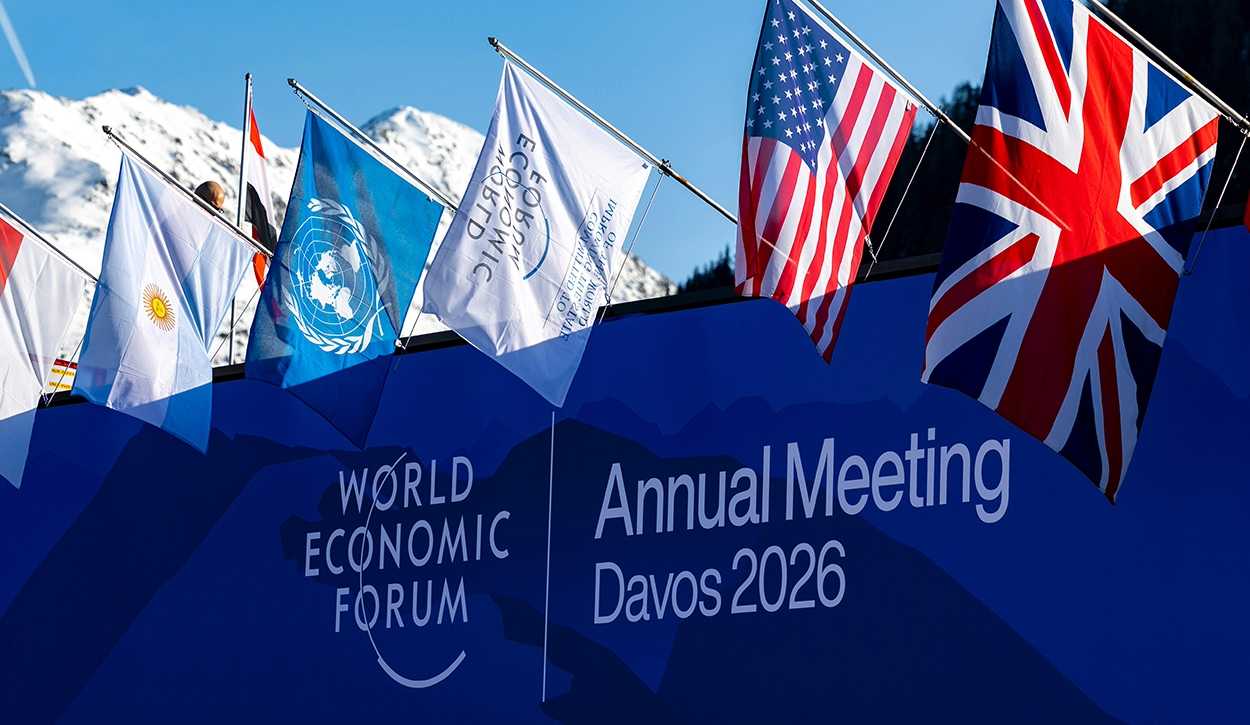
Optimism as strategy
Countries building ecosystems where government vision, business innovation, and investor confidence reinforce each other to gain competitive advantage through strategic optimism. ...
March 7, 2025 • by Heather Cairns-Lee, Alexander Fleischmann in Diversity, Equity, and Inclusion
As businesses face growing polarization on DE&I, companies must embed inclusion into their core strategy, empower leaders to drive change, and ensure that the progress made so far is not quietly undone....
When it comes to the representation of women in executive roles over the past few years, are we making strides or losing ground? While European regulations and corporate initiatives signal that progress is being made on this side of the Atlantic, the rollback of diversity, equity, and inclusion (DEI) programs in major US companies paints a different picture.
This formed the backdrop for today’s panel discussion hosted in collaboration with BPW Lake Geneva, part of a 95-year-old network advocating for women’s equality.
Featuring ADM’s Mayka van Acht, IMD’s Sarah Toms, and Yulia Voronina, who co-leads the IMD Inclusive Leadership Alumni Community, and moderated by IMD’s Heather Cairns-Lee and Alexander Fleischmann, the panel addressed the tensions that are shaping today’s workplace dynamics – polarization versus progress, inclusion versus division, and how leaders and organizations should respond.
It's almost impossible to go back, because ‘back’ doesn't exist anymore.Yulia Voronina, eCommerce Lead, Nestlé Nutrition Europe

The panel discussion focused on the evolution of DE&I from a culture of diversity to one of inclusion.
While progress is being made, the reality is that many US companies are dismantling their DE&I initiatives. For Sarah Toms, Chief Innovation Officer at IMD, the speed of these reversals was staggering. “We had this false sense of security that these things would continue, and we would continue to see progress,” she said, citing the abrupt cancellation of DE&I programs at companies like Google, which had published a report on how diverse teams leads to innovation. “This is shocking, right? How do we handle this?”
For Toms, one action that individuals could take is to consider what companies they choose to support through their purchasing power. “We have to remember that we all vote every time we take our credit card out,” she noted. “So, we can vote. And we know that standing up against what this means is what’s going to help that course correction happen.”
During the event, participants were invited to take part in a live word cloud exercise, which highlighted audience sentiment: words such as “confusion,” “uncertainty,” and “disappointing” appeared to dominate but a flicker of “hope” did appear. The panel discussed the palpable anxiety among professionals about speaking out on gender and inclusion issues within their own organizations.
For companies seeking to maintain progress, the structural and cultural embedding of inclusion is key. “It’s important to recognize this moment, this is a defining moment. We don’t know how long it lasts. We don’t know what the outcome will be,” said Yulia Voronina. “We need to have this dialog, and we need to participate because if you don’t participate, don’t expect someone to protect, defend, or present your position.”
The panel agreed that it was important to ensure that inclusion is embedded into core business operations, such as hiring and leadership development processes, rather than being sidelined. They stressed the importance of helping others to thrive by considering how to make workplaces more inclusive for people from all backgrounds.

“We had this false sense of security that these things would continue, and we would continue to see progress.”Sarah Toms, Chief Innovation Officer at IMD
One emerging trend is the potential for Europe to attract talent fleeing restrictive policies in the US. “We have seen more applications from US-based faculty,” noted Toms, suggesting a possible ‘brain drain’ as professionals seek workplaces that prioritize inclusion and innovation.
Yet, Europe has its own challenges. The Economist’s glass-ceiling index places Switzerland 26th out of 29 countries in terms of workplace equality, highlighting the persistence of barriers for women in leadership. Switzerland has 32.4% female representation in managerial positions and 34.4% in board roles, despite women being more than 50% of the population.
As the discussion ended, the panelists reinforced a call to action – progress is possible, but it requires deliberate effort. Companies must integrate inclusion into their core business strategy. Individuals must advocate within their spheres of influence. Communities must sustain momentum.
The session ended with a powerful analogy: “We all have two hands – one hand to receive help and another to help others.”
Progress is not just about policies but about individuals stepping up, creating inclusive cultures, and sustaining momentum, even when the external environment remains so uncertain.
This article is inspired by a live webinar Progress or Polarization for Women in Leadership, which took place on 7 March to mark International Women’s Day 2025 at IMD, in collaboration with BPW Lake Geneva.
Further reading: Mind the Gap white paper

Affiliate Professor of Leadership and Communication
Heather Cairns-Lee is Affiliate Professor of Leadership and Communication at IMD. She is a member of IMD’s Equity, Inclusion and Diversity Council and an experienced executive coach. She works to develop reflective and responsible leaders and caring inclusive cultures in organizations and society.

Equity, Inclusion and Diversity Research Affiliate
Alexander received his PhD in organization studies from WU Vienna University of Economics and Business researching diversity in alternative organizations. His research focuses on inclusion and how it is measured, inclusive language and images, ableism and LGBTQ+ at work as well as possibilities to organize solidarity. His work has appeared in, amongst others, Organization; Work, Employment and Society; Journal of Management and Organization and Gender in Management: An International Journal.

February 2, 2026 • by David Bach, Huda Al Hashimi in Geopolitics
Countries building ecosystems where government vision, business innovation, and investor confidence reinforce each other to gain competitive advantage through strategic optimism. ...

January 23, 2026 • by David Bach, Julia Binder in Geopolitics
Live from Davos: IMD’s Julia Binder and David Bach cut through the headlines on geopolitics, AI, energy – and competing visions for the international order....

January 23, 2026 • by David Bach, Julia Binder, Arturo Bris, Frédéric Dalsace, Simon J. Evenett, Florian Hoos , Jennifer Jordan, Sara Ratti, Karl Schmedders, Sarah E. Toms, Ginka Toegel in Geopolitics
From Trump and transatlantic tensions to AI’s reality check and sustainability’s reinvention, Davos 2026 signals a shift toward values-based pragmatism....

January 12, 2026 • by Simon J. Evenett in Geopolitics
In turbulent times, companies can justify their investments in geopolitical assets by moving beyond risk mitigation and using foresight to gain competitive advantage and create value....
Explore first person business intelligence from top minds curated for a global executive audience